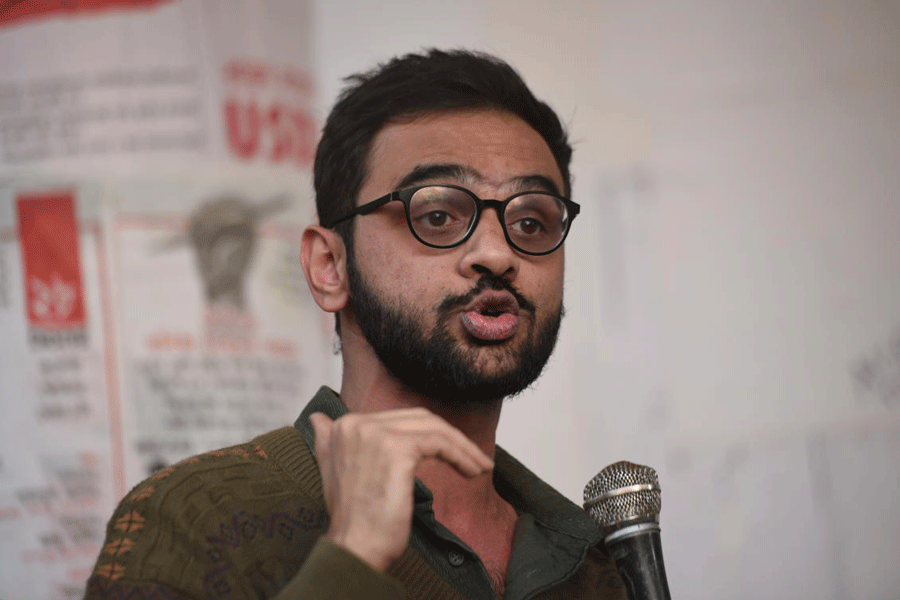The Supreme Court on Wednesday adjourned to January 10, 2024, the bail plea of former JNU student leader Umar Khalid, the latest in a series of setbacks that has kept him in jail for over three years.
Rights activist Khalid was arrested 1,171 days ago on September 14, 2020, in connection with the Delhi riots that year and booked under the draconian Unlawful Activities (Prevention) Act.
Also deferred to January 10 was a batch of petitions, including from Khalid, challenging the constitutional validity of the UAPA, an anti-terror law that critics complain is being increasingly used against political opponents and journalists by parties in power.
A bench of Justices Bela M. Trivedi and Satish Chandra on Wednesday adjourned the bail plea, which had been tagged with the petitions against the UAPA, on a joint request from senior advocate Kapil Sibal, representing Khalid, and additional solicitor-general S.V. Raju for the Delhi police.
While Raju is stated to be indisposed, Sibal was engaged in other courts when the matter came up for hearing.
Justice Trivedi, heading the bench, wanted to hear the case on December 6, but since Sibal was not available on that date, the matter stood adjourned to January 10.
Khalid’s bail plea hearings have witnessed several adjournments, although it is not uncommon. The apex court had initially issued notice on May 18 this year and wanted to hear the bail plea during the summer vacation in June. However, counsels appearing for Khalid and the Delhi police expressed their inability to argue the matter during the vacation. It was listed again on August 9, but Justice Prashant Kumar Mishra, one of the judges on the bench headed by Justice A.S. Bopanna, recused from the case.
Thereafter the matter was listed on August 18 but got adjourned after a brief hearing to October 12. When the bail plea came up for hearing on October 12, it was again adjourned due to paucity of time.
Senior advocate Arvind Datar, appearing for the Foundation of Media Professionals, requested during Wednesday’s hearing that the matter relating to the validity of the UAPA be referred to a three-judge bench hearing pleas on the validity of the Prevention of Money Laundering Act. Datar argued that Section 45 of the UAPA and Section 43(D) of the PMLA, relating to the stringent provisions of granting bail, were written in identical language and should be dealt with by a larger bench of three judges. The UAPA denies even anticipatory bail and makes normal bail a remote possibility.
He was supported by advocate Prashant Bhushan, representing three other joint petitioners.
Justice Trivedi did not accede to the request, saying the matter had been assigned to the bench of Justices Trivedi and Chandra by the Chief Justice of India.
Justice Trivedi suggested that the counsel may request the CJI to refer the UAPA matter to the three-judge bench hearing the PMLA row.
Khalid has been seeking bail on the ground of parity with co-accused Natasha Narwal, Devangana Kalita and Asif Iqbal Tanha who have been released earlier.











